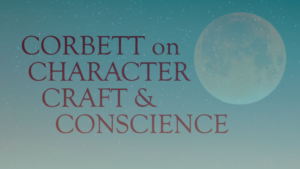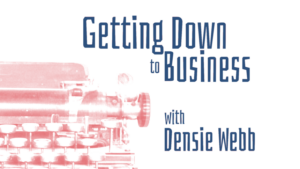publishers
Books have been getting a lot of bad press lately. According to Penn America’s website, pen.org, more than 16,000 book bans have been implemented in U.S. public schools since 2021, 4,000 of which occurred in the 2023-2024 school year alone—more than at any other time since the McCarthy era of the 1950s. Public libraries have been under assault as well, with many people questioning their relevance and even advocating for their closure.
Estimates vary as to when books as we know them were first produced, but for the majority of time since the middle of the 15th century, when the invention of the printing press made them available to common people, books were considered precious objects by those who owned them.
The idea that books were treasures held true well into the 20th century, a fact I was reminded of recently when I pulled a few antique volumes off of a shelf in my living room. These clothbound gems, a couple of which were published in the mid-1800s, are marvels to behold.
The first in a two-volume set, Ruins of Ancient Cities by Charles Bucke, published in 1848 by Harper & Brothers of New York, features a detailed etching of ancient Athens across from its title page. The indentations made by the printing press on the book’s pages can still be seen if you look at its elegant serif typeset at just the right angle, a reminder that someone painstakingly set the type for all 360 pages by hand, a feat of craftsmanship few people living today could accomplish without error.
Perhaps even more impressive is Everyman’s Library: A Short Biographical Dictionary of English Literature by John W. Cousin. Published by E.P. Dutton & Co. of New York in 1910, the book’s endpapers feature a gorgeous, scrolling Edwardian design complete with a rendering of the Roman goddess Flora who symbolizes abundance. The publisher’s advertisement for the rest of the Everyman series at the beginning of the book is just as lovely, its type arranged to resemble a stylized tulip.
In my mind’s eye, I can picture the families who once owned these books, sitting in their living rooms, reading passages to one another aloud. Back when these hardcovers were published, reading often felt like an adventure. These books were prized possessions, not just because of their content, but because they were well made, beautiful to look at, and expensive to buy. Books like these said something about the people on whose shelves they were stored.
With their flimsy cover stock and recycled paper pages, modern-day print books, by contrast, often feel disposable. And although they are convenient to buy and read, and better for the environment, electronic books are like ghosts even in comparison to these, gone at the touch of a button.
Of course, the format of modern books makes them affordable and widely available to large numbers of readers. And the myriad types of other media readily accessible online makes it unlikely that books will ever regain the status they once enjoyed on a large scale.
Not unlike the American Arts and Crafts movement of the late 19th and early 20th centuries—a […]
Read More
“The simple step of the courageous individual is not to take part in the lie.” —Alexandr Solzhenitsyn
Consider today’s long post an extended continuation of sorts to Rachel Toalson’s inspiring offering from this past Wednesday, “The World Needs Writers Now More Than Ever.” If you have not yet read her post, I strongly recommend it, because it speaks to the courage and commitment and community we will need to overcome the things I describe below, which she identifies as the opposition we will likely face as we continue to address the truths we find most necessary in our writing.
She also recommends joining Authors Against Book Bans, and I second that—loudly, humbly, fiercely.
The Poet and the Dictator
A recent posting online titled “The Parable of Anna Akhmatova,” addressed the issue of what it means to produce art in the face of censure, condemnation, even threats to liberty and life from those in power.
Ted Gioia, an American jazz critic and music historian and the author of 12 books, wrote the post for his substack, The Honest Broker—”a frank and opinionated guide to music, books, media, and culture,” which I heartily recommend.
He began by lamenting the current state of the arts, music in particular, which he believes has been coerced into conformity by:
[T]he technocratic tone in today’s culture in which prominence and relevance is determined by metrics imposed by huge corporations.
Sometimes they won’t even tell you their metrics—who knows how Netflix evaluates its shows? Who knows how things go viral on Instagram?
But when we do learn what moves the wheels of digital media, it’s usually clicks, links, dollars, profits, and other extrinsic hierarchies.
If you look at art that way, you will avoid anything that deviates from mainstream entertainment. Or even just mindless distraction.
That’s why it’s useful to remind ourselves of other times and places when even the free creative impulse of artists, even those of genius, genuinely seemed on the verge of eradication.
He then recounted the story of Anna Akhmatova, one of the most revered of Russian poets. He noted that despite the oppression the Communist regime imposed on her—her poetry was fiercely criticized and censored, the secret police bugged her home, and she was kept under constant surveillance—in the long run, her writing “prevailed.”
To those who don’t know the background: Anna Akhmatova was both brilliant and beautiful—Modigliani created at least 20 paintings of her, and Boris Pasternak proposed to her on numerous occasions—and her poetry was well received prior to the 1917 Revolution. But once the Bolsheviks seized complete power, she fell suddenly and steeply out of favor:
One by one, the people closest to her were arrested, prosecuted, and often executed. Her ex-husband Nikolay Gumilev, falsely accused of participating in a monarchist conspiracy, was shot. Her common-law husband Nikolai Punin, an art scholar, got arrested and sent to the Gulag, where he died. (His offense was allegedly mentioning that the proliferation of portraits of Lenin throughout the country was in poor taste.)
But none of these indignities struck as deep as what happened to her son, Lev Gumilev. First sent […]
Read MoreTherese here to trumpet that today’s WU author is now a published novelist! In fact, Jillian Forsberg’s debut, The Rhino Keeper, releases today! Congratulations, Jillian!
My debut novel, The Rhino Keeper, releases today through the micro-press History Through Fiction. They publish 2-3 titles a year.
I have a secret to tell you, reader.
I didn’t know how good I’d have it when I signed with this small press.
Many authors dream of big, six-figure deals with the biggest publishers in the world, or signing with the agent of your dreams. My fear, if I’d have signed with an agent, is that dreaded phrase: died on submission. This industry is full of highs and lows, and we all must face the reality that if you sign with an agent, you may not get a pub deal. The anguish!
But I’m here to tell you that if your goal is a book in your hands, you absolutely must consider small presses. Quite frankly, I don’t have the skill set to indie publish myself. Kudos to those who do. The ins and outs of the publishing industry and how to get a book into the world is not something I can do alone. It’s complicated, challenging, and difficult. Indie authors, you’re truly incredible humans who work every side of your career! I would still be floundering in the upload phase if I tried.
Now,I can’t speak to all the small presses, but I can tell you my experience with the one I’ve signed with.
Here’s why History Through Fiction is a gem:
— The submissions process was easy and my manuscript was requested within days of submitting.
—I heard back with an extremely kind offer email within weeks of the full request.
—The Zoom call offer was very low-pressure and things were spelled out clearly for me with what to expect, what resources and limitations exist within the small press, and what life is like for their authors.
—They gave me contact information for their authors so I could speak to them individually and find out what their experiences were like. Their authors were responsive, kind, and even chatted on the phone with me.
—The contract I had reviewed by a lawyer (my uncle, lucky me!) needed no changes and had a lovely royalty rate plus a small advance.
—I was given a multiple page marketing plan, plus the option to add ideas via a submittable website that allowed me to voice my own opinions.
—The edits for the manuscript were clear, collaborative, and easy to follow. Kindness exuded in the comments in the digital document.
—I had input and influence over the cover and interior of the book. Neither needed major changes after initial designs were sent over and I was wildly pleased with the results of both.
—Marketing was collaborative but I always felt I was getting an equal share of the platform with already-published works and my own, unpublished book.
—My ideas for marketing were met with excitement and the best word: “YES!”
—I was able to order many copies of the book in advance to sell on my own website and take to events, even pre-launch. This feels special as early readers are more likely to create a fan base.
—Giveaways, NetGalley, Goodreads, Amazon, LibraryThing – all of these things […]
Read MoreRecently, a writer contacted me to ask about the legitimacy of an email they’d just received, from someone claiming to be a literary agent interested in representing them.
All by itself, the solicitation itself was a warning sign: reputable agents, who are drowning in submissions, have no need to drum up business and don’t typically cold-call writers to hawk their services. But I’d also gotten several complaints about this purported agent, so I knew for sure this was a “beware”.
I informed the writer–who had contacted me several times before to ask about what also turned out to be scams, and had themself been scammed by a predatory vanity publisher–and apologized for yet again being the bearer of bad news. “I guess everyone’s a bad guy,” the writer responded sadly, “and it’s pointless even to try.”
I understand this mindset. Especially for self-published authors, who are the primary target these days for the extremely numerous and highly aggressive solicitation scams I wrote about in my very first post for Writer Unboxed, it can certainly seem like publishing a book is equivalent to diving, unprotected, into a shark tank.
The reality, however, is not quite that awful. Yes, there are a lot of bad actors in and around publishing…not just scammers and predators, but people and companies who are well-intentioned but don’t have the skills to do the job (schmagents, unqualified freelance editors, amateur publishers). But that doesn’t mean there aren’t also plenty of reputable, competent people. They definitely exist. The constantly expanding universe of scams and pitfalls hasn’t changed that.
The writer’s response got me thinking, though. My standard advice for how to cope with the prevalence of scams is to educate yourself: learn as much as possible about publishing and self-publishing–and do it before you start trying to snag an agent, or querying publishers, or assessing self-publishing platforms and service providers. The more you know about how things should work, the easier it is to recognize bad practice when you encounter it. (The Writer Beware website is a good place to start.)
But it’s not just about being prepared with adequate knowledge. Mindset is also important: your default assumptions about, and responses to, the people and situations you encounter along your publication journey. Such expectations can help you, or they can hinder you–like my writer friend, whose bad experiences caused them to conclude, falsely, that no one can be trusted.
Following are some of the common damaging mindsets I see in my work with Writer Beware, along with suggestions for, hopefully, shifting them.
MINDSETS TO ABANDON, AND SOME TO ADOPT
Mindset 1: Everyone is a scammer. The writer mentioned above is far from the only one with a paranoia problem. I regularly hear from authors who are so traumatized by a scam experience, or even just the prospect of stumbling into one, that they don’t know which way to turn.
Believe me, I get it. Especially if you’ve been ripped off before, or are being hounded by a parade of solicitation fraudsters, or had a terrible experience with a publisher that wasn’t intentionally dishonest but screwed you anyway and behaved badly when things began to go wrong, it can seem like it’s not safe to trust anyone. But […]
Read More
At the risk of sounding like a broken record, AI dominated the book biz headlines again, but publishing news (about books written by humans) gave it a run for its money. Amazon has a category all its own, of course. AI and copyright issues go hand-in-hand, but it’s looking like the EU may be a step ahead with possible approval of the AI Act. You can’t go online without reading about the potential for AI to both help and harm. But we can’t blame everything on AI, there’s also the cases of authors behaving badly—spoiler alert—don’t troll fellow authors on Goodreads, and it’s probably a bad idea to write a book about murdering your husband, and then, murder your husband. Then there’s Texas, where the state’s attempt to ban books has been ruled unconstitutional. We’ll see where that one goes. And a happy birthday wish goes out to Simon & Shuster, which has celebrated 100 years in the book biz. And lots more. Read on!
AI
Authors collaborating with AI and with each other
Exploring the frontiers of AI and book publishing
The past and future of copyright
Open AI admits it needs copyright material to function
Japanese laureate pokes a hole in the idea that AI will never write as well as humans
AI generated content makes trust more valuable
Opinion piece on saying ‘no’ to AI for creative pursuits
European publishers calling for approval of AI Act
Canada legislators are wrestling with the tangled mess of AI and copyright
Amazon
Jane Friedman offers up ways to improve your Amazon ranking
Amazon’s power over the book industry
Book Bans
Penguin Random House joins fight against book bans
Washington Senate makes it harder to shut down a library
Texas book banning law ruled unconstitutional
Book Stores
The internet’s favorite women-driven bookstore
Marketing and Promotion
Authors behaving badly: Goodreads’ review-bombing fiasco
5 reasons marketing is hard for writers
Publishing
Is there a fiction factory in conglomerate publishing?
46% of Americans didn’t read a book in 2023
Big Five’s hold on bestseller lists loosened a bit in 2023
Beware scam website impersonating Macmillan Publishers
How-to-murder-your-husband writer sentenced for murdering her husband
Simon & Schuster celebrates 100 years
Publishers need to establish a symbiosis with publishers
Self Publishing
Is self-publishing a good choice for authors in 2024?
Have you used AI? How? For story ideas, to write a synopsis, a query letter, an outline? What has your experience been? What do you see as the pros and cons? Will you use it again? Have you experienced book bans or attempted book bans in your schools, libraries, communities? Who do you know who’s fighting the good fight?
Read MoreThe current self-publishing industry has its roots in the mid-1990s, when three startups–Xlibris, Trafford, and AuthorHouse–began selling digital publishing services to individual authors.
(Bear with me: I’m getting to the subject of this post!)
Along with similar provider iUniverse, these companies later incorporated under the umbrella of Author Solutions, Inc. (AS). A pioneer in the assisted self-publishing space, AS also pioneered the hard-sell sales tactics, deceptive advertising, and expensive junk marketing techniques that dominate this publishing segment. (Junk marketing: marketing services that are cheap to provide, sold at a large markup, and are of dubious value for book promotion.)
Sometime in the mid-2000s, AS began outsourcing most of its sales and production to the Philippines, where there is a large, educated, English-speaking work force that’s also less costly than equivalent workers in the USA. Inevitably, some of the more entrepreneurial-minded of these staffers, seeing how lucrative it was to convince writers to spend large amounts of money to publish and market their books, decided to set up their own self-publishing enterprises to poach authors away from AS and other companies.
When I first started discovering these AS knockoffs (here’s my first blog post about them), they were mostly just selling Author Solutions-style publishing and marketing packages–although exponentially more overpriced and deceptively advertised than the original, with terrible customer service and the books and other products far more likely to be of poor quality (and that’s when they didn’t just take the money and run).
In recent years, though, their numbers have exploded—there are hundreds of AS knockoffs in operation now, and more cropping up all the time—creating fierce competition for customers in an increasingly crowded field. This has driven them to adopt ever more brazen practices to support their quest for writers’ cash: forging documents and contracts from Big 5 publishers, selling completely fictional products such as “book insurance”, engaging in elaborate front operations involving multiple fake businesses, and impersonating reputable literary agents, publishers, and movie companies.
Impersonation scams especially have become common over the past couple of years, and they can be quite convincing. In this post, you’ll find examples of the three types of impersonation scam you’re most likely to encounter, along with a look at the telltale signs that can identify them.
Read MoreAfter the excitement of a “yes” from a publisher comes the job of assessing your publishing contract.
Facing down ten pages of dense legalese can be a daunting task, especially for new and inexperienced writers, who may not have the resources to hire a literary lawyer, or have access to a knowledgeable person who can help de-mystify the offer terms.
And it is really, really important to assess and understand those terms, because publishing contracts are written to the advantage of publishers. While a good contract should strike a reasonable balance between the publisher’s interests and the writer’s benefit, a bad contract…not so much.
In this article, I’m going to focus on contract language that gives too much benefit to the publisher, and too little to the author. Consider these contract clauses to be red flags wherever you encounter them. (All of the images below are taken from contracts that have been shared with me by authors.)
Copyright Transfer
Unless you are doing work-for-hire, such as writing for a media tie-in franchise, a publisher should not take ownership of your copyright. For most publishers, copyright ownership doesn’t provide any meaningful advantage over a conventional grant of rights, and there’s no reason to require it. Even where the transfer is temporary, with rights reverting back to you at some point, it doesn’t change the fact that for as long as the contract is in force, your copyright does not belong to you.
Copyright transfers usually appear in the Grant of Rights clause. Look for phrases like “all right, title and interest in and to the Work” and “including but not limited to all copyrights therein.”
Watch out also for contracts where a copyright transfer in the Grant of Rights clause is contradicted by language later on–such as requiring the publisher to print a copyright notice in the name of the author (which shouldn’t be possible if the author no longer owns the copyright). For one thing, you don’t want your contract to be internally contradictory, which could pose legal issues down the road. For another, such contradictions suggest that the publisher doesn’t understand its own contract language, which is never a good thing.
There’s more on the not-uncommon problem of internal contradictions here.
Life of Copyright Grant Without Adequate Reversion Language
Big publishers routinely require you to grant rights for the full term of copyright (in the US, Canada, and most of Europe, your lifetime plus 70 years). Although they’re more likely to offer time-limited contracts, many smaller presses do as well.
Contrary to much popular belief, this is not necessarily a red flag…as long it’s balanced by clear, detailed language that ensures you can request contract termination and rights reversion once sales drop below specific benchmarks: for example, fewer than 100 copies sold during the previous 12 months, or less than $250 in royalties paid in each of two prior royalty periods. Publishers like to sit on rights, because they can make money from even low-selling books if they have a big enough catalog. Authors, on the other hand, don’t benefit from a book that’s selling only a handful of copies and getting no promotional support. At that point, it’s better to be able to revert your rights and […]
Read More














